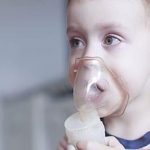Climate change is already making Americans sick and researchers warn that the nation must take swift action to protect people’s well-being.
“Climate change effects aren’t just an abstraction, something that will happen years from now. They are happening today, and they impact every aspect of your health, from the air you breathe [more smoke, more pollen] to the nutritional quality of the food you eat [less protein],” said researcher Lewis Ziska, a professor of environmental health sciences at Columbia University Mailman School of Public Health in New York City.
“Yet at present, at the federal level, there is almost no funding for studying the health effects,” he added. “We are stumbling along with a candle, when we need a searchlight to see — and to respond — to these threats.”
Ziska was among the contributors to a U.S. Brief that accompanies the annual Report of the Lancet Countdown on Health and Climate Change. A large international team produced the report, which was published Oct. 24 in The Lancet. It focuses on three climate change-associated health threats: heat waves, drought and wildfires.
Compared to 1986-2005, U.S. seniors and babies under 1 year of age experienced many more days of heat wave exposure in 2020.
Certain groups are more likely to be exposed to extreme heat, including people of color, outdoor workers, prison inmates and those living below the poverty line, the study noted.
Wildfires in the Western United States dovetail with hotter temperatures and the wildfire season is getting longer.
By September of last year, the maximum annual U.S. wildfire incidence peaked at about 80,000, eight times more than in all of 2001.
There is emerging evidence that fine particulate matter (PM2.5) in wildfire smoke may be up to 10 times more harmful to human health than PM2.5 from other sources, posing an increased risk of respiratory harm to children.
It’s also been shown that PM2.5 from climate change-intensified wildfire smoke increases the risk of contracting and dying from COVID-19, possibly by enabling the virus to travel farther and cause more lung inflammation.
Droughts also are a health threat because they compound exposure to heat, increase respiratory and infectious disease risks, harm water quality, and worsen mental health issues, particularly in rural areas.
“The data in this report are more than just alarming statistics and trends,” brief lead author Dr. Renee Salas said in a Lancet news release. She’s a climate and health expert at the Harvard Global Health Institute and Harvard T.H. Chan School of Public Health. “These numbers represent patients, such as those with worsening asthma attacks, Lyme disease, or life-threatening illnesses from extreme heat.”
Acting on climate change is a way to improve health in the United States and advance equity, she added.
The brief outlines what the United States needs to do. The steps include making rapid reductions in greenhouse gas emissions, recognizing the health-related costs of fossil fuels, and quickly increasing funding for protections against climate change-related health threats.
“Climate change is real and happening now,” said brief contributor Dr. Cecilia Sorensen, associate professor of environmental health sciences at Columbia’s Mailman School. “The good news is that there is a ton that we can do to change the course we are on.”
More information
The World Health Organization has more on climate change and health.
SOURCE: The Lancet, news release, Oct. 28, 2021
Copyright © 2026 HealthDay. All rights reserved.
















